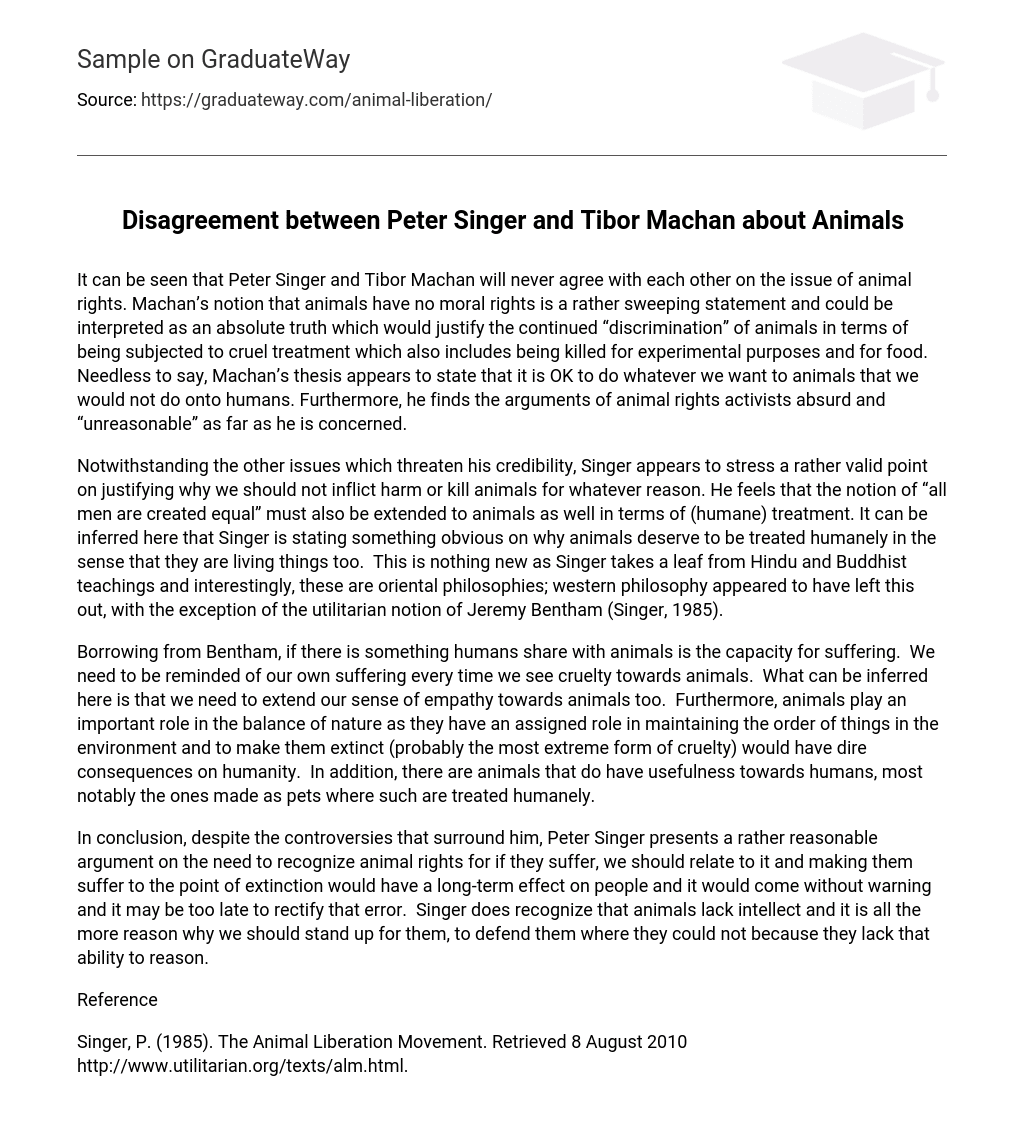It can be seen that Peter Singer and Tibor Machan will never agree with each other on the issue of animal rights. Machan’s notion that animals have no moral rights is a rather sweeping statement and could be interpreted as an absolute truth which would justify the continued “discrimination” of animals in terms of being subjected to cruel treatment which also includes being killed for experimental purposes and for food. Needless to say, Machan’s thesis appears to state that it is OK to do whatever we want to animals that we would not do onto humans. Furthermore, he finds the arguments of animal rights activists absurd and “unreasonable” as far as he is concerned.
Notwithstanding the other issues which threaten his credibility, Singer appears to stress a rather valid point on justifying why we should not inflict harm or kill animals for whatever reason. He feels that the notion of “all men are created equal” must also be extended to animals as well in terms of (humane) treatment. It can be inferred here that Singer is stating something obvious on why animals deserve to be treated humanely in the sense that they are living things too. This is nothing new as Singer takes a leaf from Hindu and Buddhist teachings and interestingly, these are oriental philosophies; western philosophy appeared to have left this out, with the exception of the utilitarian notion of Jeremy Bentham (Singer, 1985).
Borrowing from Bentham, if there is something humans share with animals is the capacity for suffering. We need to be reminded of our own suffering every time we see cruelty towards animals. What can be inferred here is that we need to extend our sense of empathy towards animals too. Furthermore, animals play an important role in the balance of nature as they have an assigned role in maintaining the order of things in the environment and to make them extinct (probably the most extreme form of cruelty) would have dire consequences on humanity. In addition, there are animals that do have usefulness towards humans, most notably the ones made as pets where such are treated humanely.
In conclusion, despite the controversies that surround him, Peter Singer presents a rather reasonable argument on the need to recognize animal rights for if they suffer, we should relate to it and making them suffer to the point of extinction would have a long-term effect on people and it would come without warning and it may be too late to rectify that error. Singer does recognize that animals lack intellect and it is all the more reason why we should stand up for them, to defend them where they could not because they lack that ability to reason.
Reference
Singer, P. (1985). The Animal Liberation Movement. Retrieved 8 August 2010 http://www.utilitarian.org/texts/alm.html.





